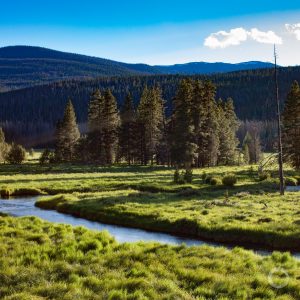The Stream, January 13: U.S. Water Prices Could Become Unaffordable For Many
The Global Rundown
More than a third of households in the United States could struggle to pay their water bills within the next five years, researchers say. Residents in Gaza are protesting worsening power and water shortages. Andhra Pradesh may send more water to help boost dwindling reservoir levels in the city of Chennai. The U.S. government announced on Thursday that it will pay billions of dollars to military veterans affected by contaminated water in North Carolina. The Obama administration also enacted a ban on new mining projects in a national forest in Oregon, protecting streams and rivers.
“There is no work, no crossings, no food, no water to drink and also there is no electricity. Enough Hamas. Enough, enough, enough. We want electricity, we want electricity, we want electricity.” –Adel Al-Mashwakhy, a comedian in Gaza, commenting on crippling power shortages that have stirred protests and curbed household water access. (Reuters)
By The Numbers
$2.2 billion Amount that the U.S. government will make available to provide healthcare assistance to as many as 900,000 military veterans who were exposed to contaminated drinking water at Camp Lejeune, North Carolina over four decades. Associated Press
13 percent of capacity Current storage level in four reservoirs that supply water to Chennai, the capital of India’s Tamil Nadu state. The chief minister of Andhra Pradesh, which borders Tamil Nadu to the north, said his state would provide as much help as possible to relieve the city’s shortage by releasing water from the Telugu Ganga project. The Hindu
Science, Studies, And Reports
Water bills may present an economic hardship to nearly 36 percent of households in the United States within the next five years, up from about 12 percent now, according to a study by researchers at Michigan State University. Aging infrastructure presents steep costs for water utilities at the same time water conservation and, in some cases, shrinking populations, leave them with less revenue to make the necessary upgrades. As a result, many must raise water rates for their customers. Science Daily
In context: See how water rates are changing in 30 major U.S. cities.
On The Radar
No new mining projects will be allowed in an area covering more than 40,000 hectares of Oregon’s Rogue River-Siskiyou National Forest after the Obama administration enacted a 20-year ban on Thursday. Proposed nickel mining ventures sparked fierce opposition over fears that they would pollute rivers and streams in the federal forest. Statesman Journal
A news correspondent for Circle of Blue based out of Hawaii. She writes The Stream, Circle of Blue’s daily digest of international water news trends. Her interests include food security, ecology and the Great Lakes.
Contact Codi Kozacek




